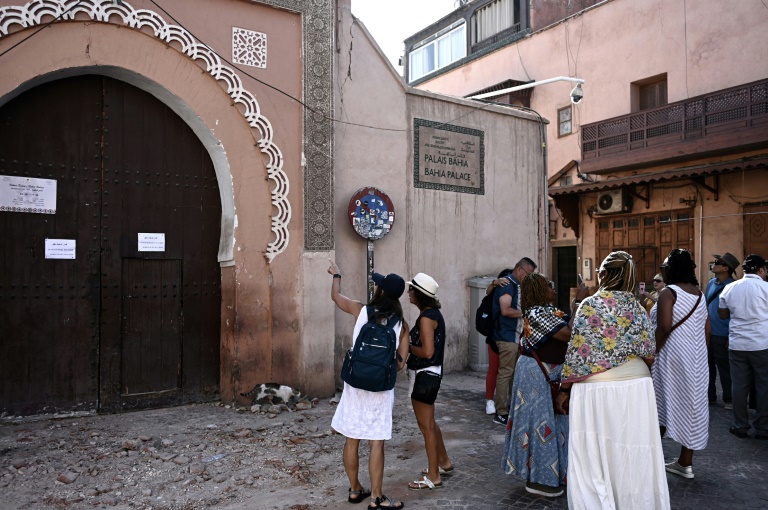Tourists ‘not going to let quake’ stop Morocco trip

Tourism is the lifeblood of the Morocco’s economy, and Marrakesh is its main attraction
Marrakesh – Marrakesh’s ancient medina was nearly empty on Sunday after a deadly earthquake that hit Morocco, but it did not stop some tourists who told AFP they chose to stay on.
Tourism is the lifeblood of the North African country’s economy, and Marrakesh is its main attraction.
Friday’s devastating quake which killed over 2,000 people has also spurred fears of a repeat of the tourism slump suffered during the Covid pandemic.
Some visitors, however, were in no rush to leave.
“We’re not going to let the earthquake ruin everything,” said 35-year-old Kirian Ficher from Germany who was on a guided tour of the historic city.
“There was no warning of any major risk, so we stuck to our plans.”
Just four people were on the tour, however, and all had been evacuated from their rooms as the earthquake hit late on Friday at 11:11 pm (2211 GMT).
The 6.8-magnitude quake was the strongest ever to hit Morocco, and wiped out entire villages in the hills of the Atlas mountains southwest of Marrakesh.
“We’re still a bit hesitant about whether to leave,” said tourist Dominik Huber, 26.
“But it seems relatively safe. And also, by staying we are contributing in a small way to supporting the Moroccans.”
The small group stood outside the imposing studded wooden doors of the Bahia Palace, a top tourist attraction built in the 1860s which is now closed.
It has suffered some damage, with smashed green-glazed terracotta tiles on the ground.
Jagged cracks have appeared in the rose-coloured walls of buildings in nearby streets, and some houses are now just piles of rubble.
Guide Abderrazzaq Ouled assured the group that their tour of the city founded nearly 1,000 years ago can still go ahead.
“Most of the visit is still feasible,” he said.
– Changed city –
Not far away, three Italians asked police officers whether attractions in the city — a UNESCO World Heritage Site — were still open to visitors.
They too decided to stay, as did a couple sipping tea in the shade of a tiled terrace, and a lady in flip-flops and straw hat haggling in the one of the few shops still open for a leather bag she had her eye on.
In Marrakesh’s famous Jemaa el-Fna square, perfume and fruit juice vendors have replaced residents who spent the night in the open, wrapped in blankets, because their homes have been damaged or destroyed.
On Saturday, the SETO group which includes around 70 of France’s main tour operators said that as far as it was aware, none of its clients in Marrakesh had suffered because of the earthquake.
But the city itself has changed, its frenzied activity gone.
The human toll of the tragedy continues to mount. Already 2,012 deaths have been recorded and 2,059 people have been injured, mostly in rural mountainous areas southwest of Marrakesh.
The country’s Tourism Observatory is concerned that the economic consequences of the disaster may negate the upturn in visitor numbers recorded this year.
– ‘Entire groups cancelled’ –
The observatory recorded some 6.5 million tourists in Morocco in the first half of 2023, mainly from Western Europe and the United States, an increase of 92 percent compared with the same period last year.
And Marrakesh is Morocco’s main magnet for tourists, with more than 4.3 million visitors, the observatory’s figures show.
But the economic effects of the quake are already being felt by some tourism professionals in the city.
“Entire tour groups have already cancelled, fearing aftershocks,” said 56-year-old Daehmen Ziani who runs a hammam.
“The medina is the pride and soul of Marrakesh, and tourism accounts for 99 percent of our income. If that dies, then everything will stop” as it did during Covid, Ziani said, speaking on the marble steps of his now deserted business.
Morocco imposed a strict lockdown in spring 2020 because of the pandemic, and its tourism industry ground to a halt.
“Then, we could only cross our fingers and hope that such a disastrous time doesn’t happen again,” Ziani added.
